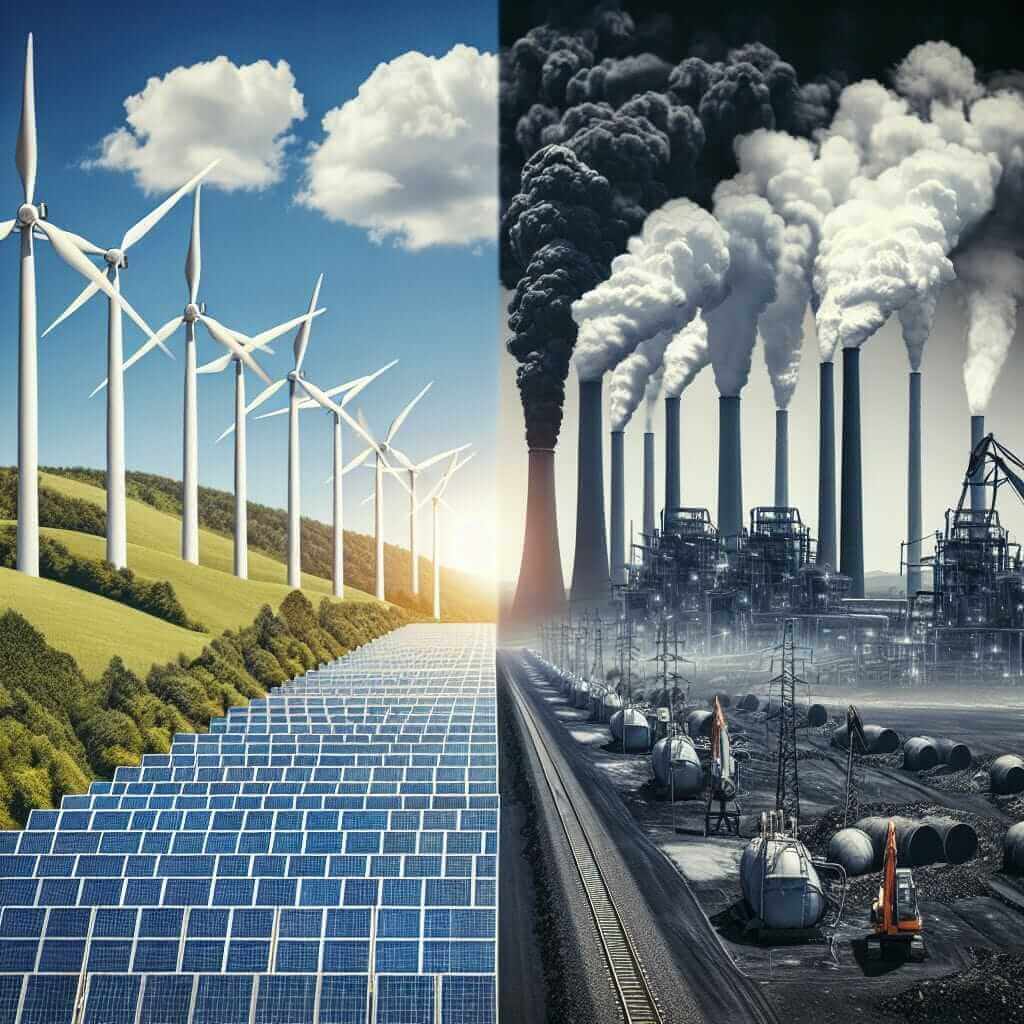The IELTS Reading section is a crucial part of the IELTS exam, testing your ability to understand and process complex texts. One of the frequent topics is the impact of renewable energy adoption on traditional energy sectors. Given the increasing emphasis on sustainability and environmental protection, this topic has been recurrent in past exams and is likely to appear in future tests as well. Understanding this subject can not only help you in the Reading section but also in Writing and Speaking sections.
Renewable energy, such as solar and wind power, has seen significant adoption worldwide. This shift impacts the traditional energy sectors relying on fossil fuels. The article below will provide a comprehensive reading passage, simulate IELTS questions, offer detailed answers, and highlight common mistakes. We will also dive into essential vocabulary and grammar tips to help you ace this topic.
Reading Passage
The Effects of Renewable Energy Adoption on Traditional Energy Sectors
Renewable energy is transforming the global energy landscape. By reducing dependency on fossil fuels, renewable energy adoption has significant implications for traditional energy sectors. These effects are multifaceted, encompassing economic, environmental, and social dimensions.
Firstly, the economic impact is profound. Renewable energy projects create jobs, from manufacturing wind turbines to installing solar panels. In contrast, traditional energy sectors face job reductions due to dwindling demand for coal, oil, and gas. Additionally, investment flows are shifting towards renewables, decreasing funding for conventional energy projects.
Environmentally, renewables offer substantial benefits. Unlike fossil fuels, renewable energy sources produce little to no greenhouse gases, mitigating climate change. This helps countries meet international environmental agreements like the Paris Accord. Conversely, traditional energy sectors are grappling with stricter regulations and higher costs associated with pollution control.
Socially, renewable energy adoption promotes energy independence and security. Countries investing in renewables can reduce their reliance on imported fuels, enhancing national security. However, communities dependent on traditional energy industries face economic hardships due to sector declines.
Technological advancements in renewables also play a critical role. Improved efficiency and reduced costs make renewables more competitive. However, energy storage and grid integration remain challenges. Traditional energy sectors must innovate or diversify to remain viable in this evolving landscape.
In conclusion, the transition to renewable energy is reshaping traditional energy sectors. While the shift presents challenges, it also offers opportunities for innovation and sustainability. Understanding these dynamics is essential for navigating the future energy landscape.

Questions
Question Set 1: Multiple Choice
-
What is one economic impact of renewable energy adoption?
- A) Increased reliance on fossil fuels.
- B) Job creation in renewable energy sectors.
- C) Decreased investment in renewable energy.
- D) Reduced need for energy storage.
-
According to the passage, what is a significant environmental benefit of renewable energy?
- A) Higher greenhouse gas emissions.
- B) Increased pollution control costs.
- C) Reduced greenhouse gas emissions.
- D) Greater fossil fuel consumption.
-
What challenge do traditional energy sectors face due to the adoption of renewables?
- A) Reduced demand for renewable energy.
- B) Decreased technological advancements.
- C) Stricter environmental regulations.
- D) Lower energy independence.
Question Set 2: True/False/Not Given
-
Renewable energy projects result in the creation of new jobs.
- A) True
- B) False
- C) Not Given
-
The Paris Accord requires countries to reduce their dependence on traditional energy sectors.
- A) True
- B) False
- C) Not Given
-
Energy storage and grid integration are not issues for renewable energy.
- A) True
- B) False
- C) Not Given
Answer Keys and Explanations
-
B) Job creation in renewable energy sectors.
- Explanation: The passage mentions that “renewable energy projects create jobs, from manufacturing wind turbines to installing solar panels.”
-
C) Reduced greenhouse gas emissions.
- Explanation: The text states, “Unlike fossil fuels, renewable energy sources produce little to no greenhouse gases, mitigating climate change.”
-
C) Stricter environmental regulations.
- Explanation: The passage notes that traditional energy sectors face “stricter regulations and higher costs associated with pollution control.”
-
A) True
- Explanation: The passage clearly says, “Renewable energy projects create jobs.”
-
B) False
- Explanation: The passage mentions that renewable energy helps countries “meet international environmental agreements like the Paris Accord” but does not state that the Paris Accord requires reducing dependence on traditional energy.
-
B) False
- Explanation: The passage mentions, “energy storage and grid integration remain challenges” for renewable energy.
Common Mistakes and Tips
- Misreading key phrases: Always read questions carefully and look back at the relevant section in the text.
- Overlooking negatives: Pay attention to words like “not” or “no” in both the passage and questions.
- Time management: Practice under timed conditions to improve speed and accuracy.
Vocabulary
- Mitigating (v): /ˈmɪtɪɡeɪtɪŋ/ – Making less severe or serious.
- Diminishing (v): /dɪˈmɪnɪʃɪŋ/ – Making or becoming less.
- Advancements (n): /ədˈvɑːnsmənts/ – Developments or improvements.
- Reliance (n): /rɪˈlaɪəns/ – Dependence on or trust in something.
Grammar
Relative Clauses
- Definition: A relative clause gives extra information about a noun.
- Example from passage: “Unlike fossil fuels, renewable energy sources produce little to no greenhouse gases, mitigating climate change.”
- Explanation: “Mitigating climate change” is a relative clause providing more information about the entire preceding idea.
Conclusion
Achieving a high score in the IELTS Reading section requires consistent practice and an understanding of various topics, including the effects of renewable energy adoption on traditional energy sectors. Utilize the passage, questions, and answers provided to hone your skills, and keep an eye out for these themes in the exam. Good luck, and keep practicing!